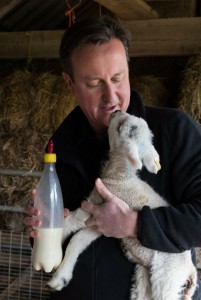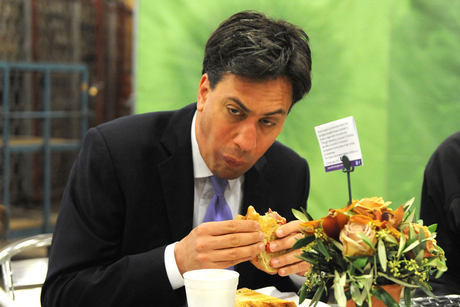 It may seem consistent that vegans would promote vegan philosophy and practice. However, this is not always the case, and part of the reason could be that many of the large North American animal campaigning organisations adopted an approach that operates at the lowest common denominator for change, where they have channelled a common desire to care about animals into tepid reforms of exploitative practices. The recent Walmart (non-binding) agreement to improve animal ‘welfare’ is a case in point, where organisations are shown to celebrate and perpetuate ideas of ‘progress’, when in reality there is little evidence things have changed, or when they believe the exploitation of non-human animals will eventually end. Though these organisations (essentially businesses 1) are often run by vegans or have vegan staff they maximise their potential influence by promoting small incremental changes in ‘treatment’, rather than promoting a paradigm shift to address the issue of ‘use’ in a way that is compatible with a vegan perspective.
It may seem consistent that vegans would promote vegan philosophy and practice. However, this is not always the case, and part of the reason could be that many of the large North American animal campaigning organisations adopted an approach that operates at the lowest common denominator for change, where they have channelled a common desire to care about animals into tepid reforms of exploitative practices. The recent Walmart (non-binding) agreement to improve animal ‘welfare’ is a case in point, where organisations are shown to celebrate and perpetuate ideas of ‘progress’, when in reality there is little evidence things have changed, or when they believe the exploitation of non-human animals will eventually end. Though these organisations (essentially businesses 1) are often run by vegans or have vegan staff they maximise their potential influence by promoting small incremental changes in ‘treatment’, rather than promoting a paradigm shift to address the issue of ‘use’ in a way that is compatible with a vegan perspective.
Some advocates believe that animal liberation is best served by withdrawing the challenge to animal use (as discussed between Francione and Friedrich), and instead place the emphasis on reducing suffering, because this tactic is said to be more effective in bringing forward the ultimate goal of animal liberation. It is the belief that progress is achieved by people reducing (or merely changing) their animal consumption, because they argue it is something attainable, compared to campaigning for people to end their consumption of animals entirely. This approach of incremental change also has the effect of enabling organisations to engage with the animal industrial complex for their own gain through agreements, publicity, self-promotion and partnerships.
The foundation for the new welfarist perspective is the idea that people require ‘softening’ 2 before they make an eventual ‘leap’ to veganism – that is, these organisations still believe in veganism itself (as an ‘ideal’), as it is the chosen practise of many at the top of these organisations. However, this ‘softening’ does not allow veganism to be presented in a clear or coherent way. This is a different approach from the ‘ripened by human determination’ that Donald Watson spoke of. The difference is apparent among new welfarist activists, where they believe the recipient of their message hasn’t the potential to make changes when presented with a vegan perspective.
As such, veganism tends to be framed by new welfarists as advocating ‘all or nothing’ when the point of education could be that we describe our lived reality of veganism, and how that compares with the generally accepted definition. Telling people ‘how to live their lives’ or demanding people ‘go vegan right now’, is a false polarisation that rarely demonstrates (in my view) the reality of vegan campaigning from any perspective. Instead, this has more to do with vegaphobic propaganda, internalised both in and outside the movement, rather than an issue with promoting veganism itself. Being honest about veganism is not a demand for other people to do as you do, it is meant as a challenge to a belief system, and an opportunity to engage with ideas.
Some vegans tend to talk about vegetarianism instead of veganism, and others talk about their ‘flexibility’ where they intentionally consume non-vegan food. This lack of ‘purity’ it is claimed, leads people to be more open to the ideas of ‘veganism’ because they get to see that it isn’t a ‘strict’ discipline. So maybe they aren’t ‘vegan’ in all situations because some situations might be inconvenient, difficult, or a struggle, so the easy way in consuming animal products is sought. This isn’t to say that on a case by case basis there may not be situations following an explanation of veganism, where a mistake is made and non-vegan food consumed. There are likely to be issues in any learning process in a vastly non-vegan world. For people that are new (though rarely these days in western society will someone not have heard of veganism at all) to veganism there are going to be plenty of situations where learning can take place, and there will always be opportunities to learn no matter how long we have been vegan. However, instead of aiming at something that is less than vegan for our practise, we can be consistent as far is possible and practicable, and ensure exploited animals are kept visible.
The question of purity also appears on various ‘vegan’ facebook pages. I haven’t seen much evidence of the ‘vegan police’ 3 dissuading potential vegans with harsh criticism and general intolerance; (I am not saying they don’t exist, rather they seem to be in the minority, and should not garner much attention unless they need to be challenged for an unreasonable claim) instead, identifying ‘policing’ seems to be reliant on perspective and interpretation. So when someone says ‘I’m vegan but still haven’t given up cheese’ it isn’t surprising that people clarify why this isn’t vegan, so we can draw attention to that issue whilst also supporting a move toward veganism. If someone else approaches a forum saying they are hoping to transition to veganism, the responses tend to be positive and helpful, with advice and personal experience given. Being true to the definition of veganism isn’t about being puritanical, it is more about being honest. Supporting the exploitation of animals whilst people transition isn’t a useful (or realistically vegan) form of assistance, nor is it what you might expect from a vegan group.
This is because we are not trying to assuage the concerns of people in their exploitation of non-human animals, instead we are trying to help people understand the issue with which we are engaging. Honesty can replace the dishonesty we find so often in contemporary politics, corporate marketing strategies, and subsequently society itself. Though this culture plays a part in maintaining animal use, it is also the unequal structure of society that undermines the practice of veganism, as for some it is easier to adopt vegan practices than others. However, this ought not affect the intent or recognition of animal rights, instead it should fuel a broader effort to bring about a society that would reflect equality and mutual aid, so that we can more readily practise our beliefs.
Further criticism for new welfarism can be directed toward Mercy For Animals, Peta and Farm Sanctuary. These groups have vegan directors and tend to promote ‘veganism’ in some way, whilst they simultaneously support exploitation through partnering with the animal industry. This is a speciesist strategy that some organisations adopt in order (they allege) to reduce animal suffering. But instead they end up reinforcing the normativity of exploitation, which in itself does nothing to challenge the commodity status of animals.
It is important to engage with people that exploit animals through consumption (in ways that can increase awareness, leading to succour for non-human animals). Yet the animal industry is fully aware of its complicity, and their continued propaganda for animal consumption can be reinforced by groups such as Peta when they become part of that same propaganda, rather than providing a consistent challenge to industry. As Roger Yates says, let the welfarists do welfarism and the people that believe in rights based advocacy do that. The mixed messages of groups promoting welfare and an incompatible veganism do little to present ideas of animal rights in a clear manner. Instead, they fudge the issue. Opportunities to pressure industry and their powerful supporters have been lost by ‘animal rights’ groups that have collaborated and in some cases celebrated the exploitation of animals.
The approach of new welfarism is also undermined by the argument that promoting veganism, and exposing various forms of animal use can influence industry to make welfare changes, where they adapt to increasing consumer scepticism. So when taking this view we see that animals can suffer less, regardless of whether the new welfarist groups are directly involved. It could even be argued that greater changes might have been made without the support of animal groups that have reassured consumers about their support for exploitation.
When groups openly collaborate with an industry that harms animals, it is a strategy that is going to draw scepticism from social justice advocates. In turn this is exacerbated when groups such as Peta use sexism and racism to sell their brand of ‘animal rights’ to the ‘mainstream’. In order to address these issues a broader critique of society is necessary so that our awareness includes an understanding of the exploitation of people, animals and the environment so that we can utilise strategies that are consistent with the radical aspects of a broader movement for liberation. So if we are going to oppose exploitation and domination of non-human animals, it makes sense to explore these ideas and how they relate to people and the environment as well.
Further references:
ARZone Podcast 84: Steve Best – The Politics of Total Liberation.
‘Circles of Compassion: Essays Connecting Issues of Justice’ by various authors (2014).
‘Comparing Social Justice Movements’ by Saryta Rodriguez (2015).
‘From animals to anarchism’ by Kevin Watkinson and Donal O’Driscoll (2014).
‘Making a Killing: The Political Economy of Animal Rights’ by Bob Torres (2007).
‘Protest Inc.’ by Peter Dauvergne and Genevieve LeBaron (2014).
‘Thoughts on Whether Animal Welfare Campaigns – and Many Welfare Organisations – are Even Needed’ by Roger Yates (2015).
1 Part of what Bob Torres called the ‘animal rights industry’.
2 As in softened by animal welfare ideology. So for instance, consuming ‘humane’ meat, or choosing vegetarian food that is generally considered to be morally progressive by society when compared to consuming meat, dairy and eggs.
3 The Vegan Police are a group rarefied by new welfarists because they juxtapose an incremental approach to veganism.







